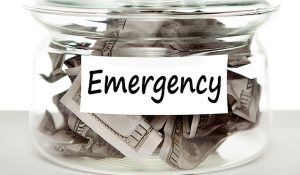 It’s so easy to complain that you don’t have time to cook. You’re too busy. It’s so much easier eating out. The kids have demanding schedules, or you work too much. These excuses can be physically and financially destructive. The truth is that no matter how busy you are, you have time to cook. You just have to prioritize it, and feeding your family home cooked meals should be a priority for your physical and financial health.
It’s so easy to complain that you don’t have time to cook. You’re too busy. It’s so much easier eating out. The kids have demanding schedules, or you work too much. These excuses can be physically and financially destructive. The truth is that no matter how busy you are, you have time to cook. You just have to prioritize it, and feeding your family home cooked meals should be a priority for your physical and financial health.
Save It for Special Occasions
Decades ago, eating out was a special occasion. Having the occasional dinner out with your family won’t put you in the poor house. It’s the habitual routine of picking up dinner on your way home from work, running through the drive-thru with the kids at lunchtime or stopping by the bakery for breakfast each morning that makes your piggy bank run low. In most cases, you’ll spend at least $20 – $25 to feed a family of four, but that price can go much higher. That money can be stretched for several meals by making a trip to the grocery store instead. Try cutting back on dinners out to once a month. You’ll be surprised at the savings.
You Don’t Have to Be a Chef
Don’t worry if cooking isn’t your forte. Your family doesn’t expect a gourmet meal at home. To throw together a quick breakfast in the mornings, keep English muffins, deli meat and fresh fruit on hand. There are many healthy cereal options, too. Lunches prepared at home can consist of a healthy salad, a tasty sandwich or some hearty soup when the weather is cold. Dinner needn’t be a three-course meal. Sloppy Joes made with ground turkey and served with sweet potato fries will please kids and adults.
Start With a Plan
Your biggest hurdle to overcome is a lack of planning. Every weekend, plan all of your meals for the week. Shop for the ingredients, and use things you have in the cupboards or freezer to cut down on your grocery bill. Use your slow cooker whenever possible for a no-muss, no-fuss cooking experience.
Once you get into the routine of creating meal plans with foods that your family will actually eat, you’ll wonder why you ever bothered with all those trips to your local restaurants. You’ll be healthier. You’ll have more money in your wallet. Finally, you’ll have more time together with your family in your own kitchen. What’s more valuable than that?







